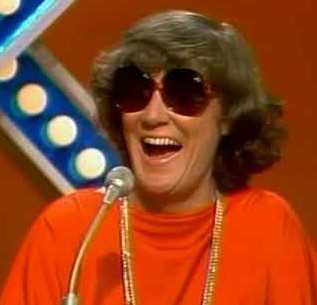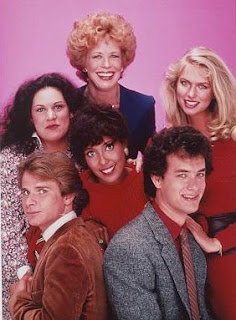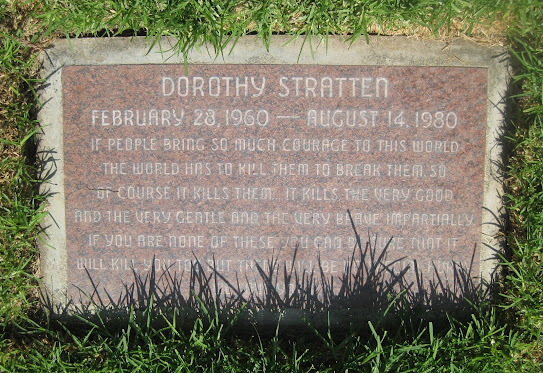"You know, I'm a television personality. It's not like I'm a famous hooker or something!"
Brett Somers was born Audrey Dawn Johnston in New Brunswick, Canada on July 11, 1924. As a young girl, she moved with her family to Portland, Maine, before leaving home at 18 and heading to New York City.
Intent on making it in show business, she changed her name, borrowing "Brett" from the Ernest Hemingway novel The Sun Also Rises. Somers was in fact her mother's maiden name.
When she was 24, Somers married businessman Robert Klein. They would divorce shortly thereafter, but not before producing one child, Leslie Klein.
When the marriage ended, Somers decided to focus on her career. She joined The Actors Studio in 1952 and soon found work on television, appearing on many popular shows of the day, including Playhouse 90 and Kraft Television Theatre.
Then in 1953, Somers remarried, this time to actor Jack Klugman (right). He proved to be Somers biggest fan, often convincing producers to find roles for her in various productions. Once Klugman was firmly established as Oscar Madison on The Odd Couple, he convinced producers to hire Somers in the role of Blanche, Madison's ex-wife, who made frequent appearances on the series. Here's a clip.
Klugman went to bat for his wife once again in 1973, when he was asked to appear as a panelist on the popular series Match Game. He convinced producers to put Brett on the show as well, and the rest, as they say, is history. With her dry wit and risque banter, she was a very popular panelist, and often matched wits with fellow regular Charles Nelson Reilly. The two remained on the series together for the next nine years. Here's a compilation of some of her best zingers.
After nearly twenty years of marriage and two children, Klugman and Somers separated in 1974. Where it went from there, I cannot confirm, as the internet is a bevy of misinformation. Some sources state that the two were divorced in 1977. Others state that they remained married, albeit estranged, until Somers' death in 2007. Cue the Unsolved Mysteries theme song.
Somers continued acting throughout the 1970s, appearing on such series as Battlestar Galactica (left), The Love Boat and The Mary Tyler Moore Show. Her final television acting role was in a 1980 episode of Chips.Klugman went to bat for his wife once again in 1973, when he was asked to appear as a panelist on the popular series Match Game. He convinced producers to put Brett on the show as well, and the rest, as they say, is history. With her dry wit and risque banter, she was a very popular panelist, and often matched wits with fellow regular Charles Nelson Reilly. The two remained on the series together for the next nine years. Here's a compilation of some of her best zingers.
After nearly twenty years of marriage and two children, Klugman and Somers separated in 1974. Where it went from there, I cannot confirm, as the internet is a bevy of misinformation. Some sources state that the two were divorced in 1977. Others state that they remained married, albeit estranged, until Somers' death in 2007. Cue the Unsolved Mysteries theme song.
When Match Game came to an end in the early 1980s, Somers returned to New York and live theatre. She would pop up on television from time to time, on such shows as The Tonight Show with Johnny Carson and a short-lived revival of Match Game in 1990. She appeared on several talk shows as well, including The Mike Douglas Show and Maury Povich. No, Povich did not give Somers a DNA test, as his show was relatively legit back in the day. Here's a clip.
By the late 1990s, Somers' health was in decline. In 2004, she'd be diagnosed with cancer, and spent most of her time at home in Westport, Connecticut. She ultimately died of stomach and colon cancer on September 15, 2007. She was 83 years old.
Brett Somers was cremated and her ashes were buried in the Memorial Garden of the Unitarian Church in Westport.
Blank in peace, Brett.
Trivia
- Somers made her Broadway debut in a 1958 show called Maybe Tuesday. The production opened on a Wednesday and closed after only five performances. Ironically, it didn't make it to Tuesday.
- Jack Klugman was also profiled here at Six Feet Under Hollywood.
- In 2002, Somers reunited with Charles Nelson Reilly for "Game Show Week" on The Hollywood Squares, hosted by Tom Bergeron. Here's a clip.
- Somers was preceded in death by her daughter Leslie, who died of lung cancer in 2003.
- In 2006, Somers appeared in the Game Show Network documentary The Real Match Game Story: Behind the Blank. You can watch it in its entirety on YouTube.
- Shortly before her death, Somers became an American citizen.














